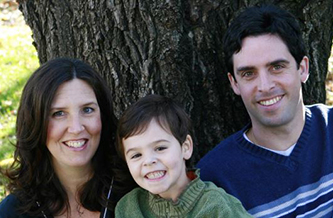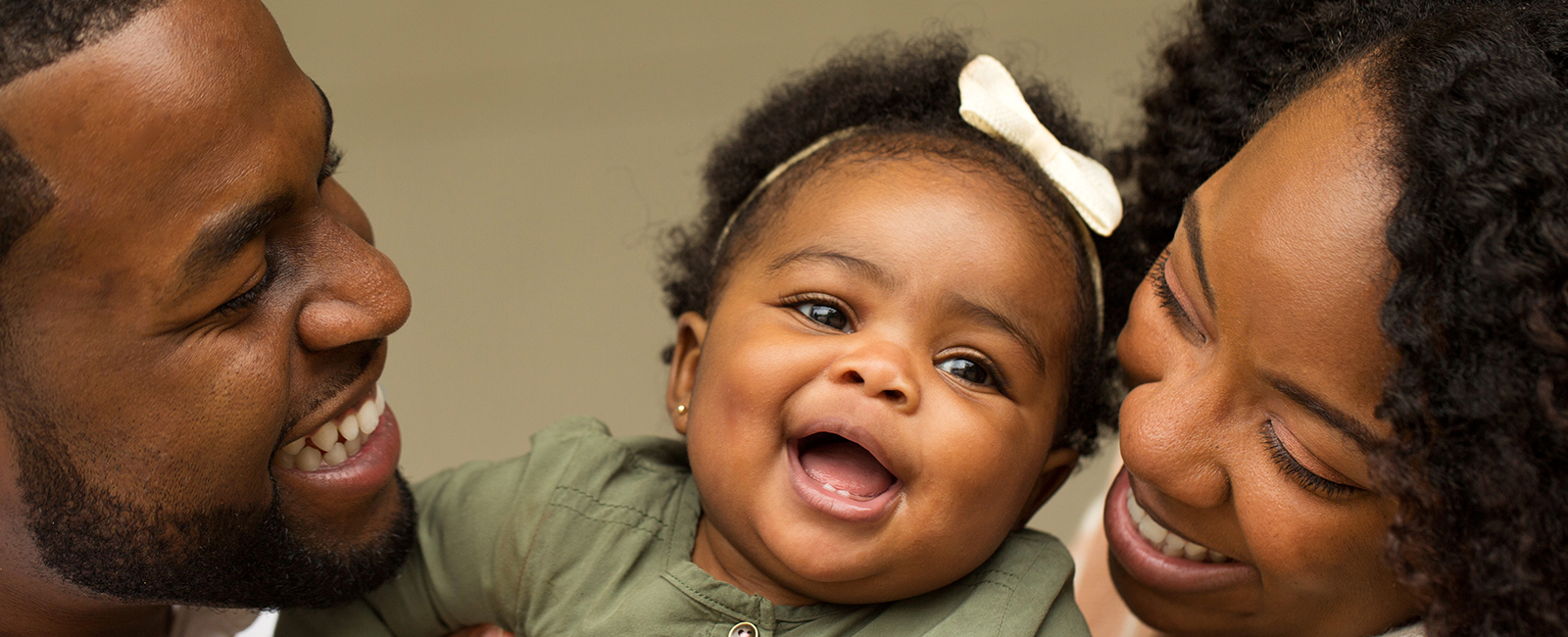Aaron & Jennifer
Foster Care
What have you learned being a foster parent?
“That it doesn’t have to change your life. People warned us that our lives would change when we became foster parents, that having children would keep us from doing the things we enjoy. But that couldn’t be further from the truth. We still enjoy our active lifestyle. It is just that now we have two children with which to share the experiences.”
Aaron and Jennifer are a young urban couple who are the epitome of what you would like to see in a foster parent, but who are also the last ones you would expect to sign up for the training course.
They have never been parents. They both work full-time. They live in a medium-sized town house. They believe strongly in advocating for change. They are out and about all the time. Many might think that all these factors would keep them from being foster parents.
As it turns out, they are a perfect fit to the two young children who came into their lives through foster care.
What is the biggest challenge you have faced?
“Being hit by the unexpected. We went into this knowing that not having children of our own, there would be new issues for us to face. However, the things we were worrying about never came to pass and those we had not thought about were large obstacles,” explained Aaron.
The couple had four hours notice before the children arrived, a boy three and a girl who had just turned two. They were nervous and expected a lot of weeping and wailing when the children arrived at their home.
“We were so surprised. Jonathon (pseudonym) just walked in, took a look around, and seemed to accept his new home without question,” observed Jennifer.
The expected did not come to pass. However, just a few hours later, chaos ensued as both children became extremely upset at bedtime.
“We couldn’t figure it out. Everything had gone so well. Then suddenly this,” added Jennifer.
What she did not understand was, for both children, beds had always been reserved for adults. They are part of a sibling set that had been living in one room with a single bed. Whether their parents punished them if they got on the bed or whether it was simply a case of the unfamiliar being frightening, the bed was the source of the tears and tantrums. After a few days, when the couple finally put two and two together, they made pallets up on the floor and bedtime became routine.
“I felt bad about doing so,” admitted Jennifer, “but we learned it isn’t really about how we feel about sleeping on the floor or how we think things should be. Blankets on the floor are what the children needed, so we set about making them comfortable on the floor.”
Once they came to understand that sleeping in a bed was okay, the two left the floor. One of the best moments, thus far, for the couple was hearing Jonathan exclaim to his foster grandfather with great wonder that his new parents had bought a bed just for him.
Why did you become foster parents?
“We both are activists. You know…poverty in Africa…the environment,” stated Jennifer. “This is certainly the area to be in if you care about changing the world. But then we started thinking about our own back yard, so to speak.”
That back yard included the hundreds of foster children in the surrounding communities who needed a safe and nurturing place to live.
They searched online and came across NVFS. What they read was enough to compel them to call. What they heard was enough to begin attending training sessions for prospective foster or respite parents.
“The training was tough,” admitted Aaron. “The people teaching it will scare your socks off for all the things that could happen with some of the special needs children. But they did so only to prepare us and to let us know that no matter what happens, someone somewhere has already gone through it and we would be supported if we encountered the same.”
That training still was not enough to prepare the couple for the reality of instant parenthood.
“The first two weeks were tough. We had no sleep. My work actually amended its maternity leave policy to include foster children so that I could have the time off. If they hadn’t, I am not sure we would have made it through that time,” added Jennifer.
It wasn’t that the training was incomplete. It wasn’t that the 24/7 on-call support system was insufficient. It was simply much, much harder being a parent than they realized. However, the deciding factor that outweighed their doubts and concerns was the thought of what might happen to the children in the absence of what the couple could do for them, even if they felt that they may be too new or too inexperienced as parents.
Standing with a child on each hip as he headed off to put them to bed, Aaron observed, “Excuse the cliché, but being a foster parent truly is the hardest job that you will absolutely love.”
What is the best part about being a foster parent?
“The milestones you never knew were so important,” answered Aaron simply. “You savor them because you realize that all the hard work is worth it just to see a child find comfort in a bed for the very first time.”
Some of the milestones are ones that any parent might recognize: tying shoes, feeding yourself, learning to walk. Others, however, are wrapped in bittersweet victory, a delicate balance between savoring the obstacle overcome and sorrowing that any child would have to go through the situation that created the obstacle in the first place. They come not in the time parents or society might expect. They do not even always look familiar. But they are equally important to a child’s development.
For example, many foster and adoptive children have attachment issues. Having missed that crucial emotional connection with a parent in early development, the child cannot or will not risk forming a bond with other people, be they siblings, parents, teachers, or caseworkers. These children can tug at your heartstrings and fillet your last nerve. Foster parents often find this maddening gulf between them and the children most frustrating.
Jonathan will crawl up in Jennifer’s lap on his own, seeking the affection young children need and crave. Eagerly, she will wrap her arms around him and talk with him. He will, for the briefest moments, lean back against her, savoring the comfort, but then just as quickly, he will break the contact and jump off her lap. In his mind, it is safer for him to pull away first, so that he won’t be disappointed by being rejected once more. Slowly, he is learning that Jennifer will never reject him. Slowly, he is learning to accept the love and nurturing and acceptance all children need.
A short while ago, this young family was in the Capital. At one point, Jonathan suddenly stopped short, looked around, and exclaimed with wonder on his face, “We are in the city. We go everywhere!”
Looking at Jonathan and his sister, you would be hard pressed to think of them as children needing foster care. Rebecca’s (pseudonym) curls tumble about a round face that could rival Shirley Temple in her youth. Jonathan, with his broad smile and slight swagger could walk in a room anywhere and captivate an audience between his over large helping of charm and the intelligence brimming beneath his brilliant eyes.
It is not clear whether or not he actually knew what a book was before he joined his foster family, but, in just a few short months, he has memorized his favorite books and will “read” them back to you, working to match up the words on the page with the words in his head.
Perhaps the best part is that he will tell you that he would like to be a doctor when he grows up. That milestone alone is enough to bring tears to both of his foster parent’s eyes just speaking about it. When he first arrived, Jonathan couldn’t or wouldn’t talk about himself. What is clear is that he didn’t see much of a future.
Whatever his future holds, Jonathan now has dreams. His dreams are enough for Aaron and Jennifer. Enough to get them through the hard times. Enough to let him go when it is time.

"It doesn’t have to change your life. People warned us that our lives would change when we became foster parents, that having children would keep us from doing the things we enjoy. But that couldn’t be further from the truth. We still enjoy our active lifestyle. It is just that now we have two children with which to share the experiences.”


